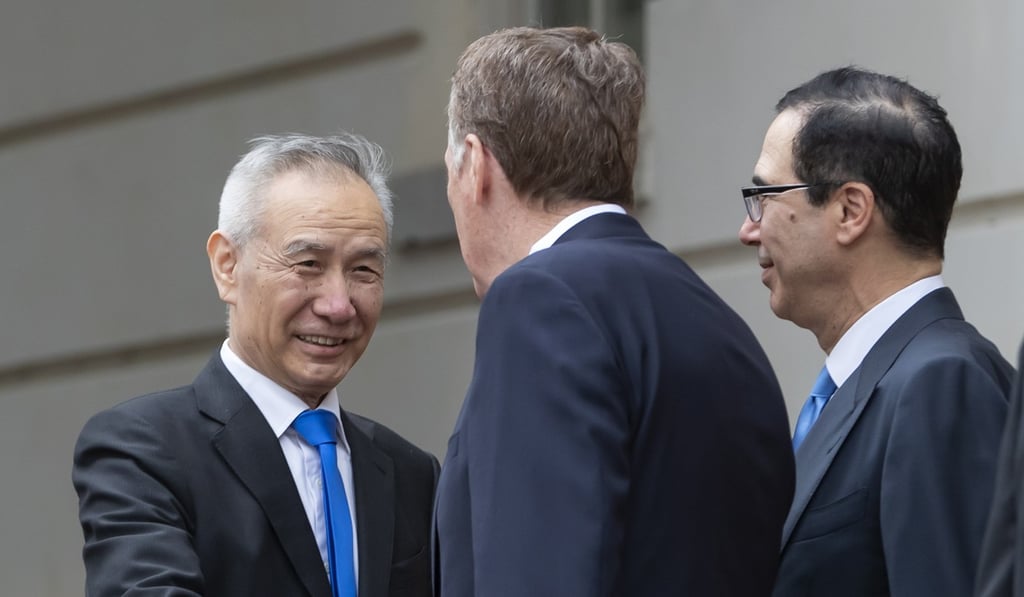China’s Vice-Premier Liu He says ‘small setbacks’ will not derail trade war talks
- Despite ending without a deal, lead negotiator describes latest talks in Washington as ‘constructive’, says next round will be held in Beijing
- In candid interview, Liu outlines differences between the two sides but rejects allegations China reneged on earlier commitments

The latest trade war talks between China and the United States in Washington may have ended without a deal on Friday, but Beijing’s top negotiator said the negotiations had not broken down.
Speaking to selected Chinese media in the US capital before heading home, Vice-Premier Liu He described the meetings as “candid and constructive” and said the two sides agreed to meet again in Beijing to continue their discussions.
“The negotiations have not broken down,” he says in a video clip published on Xinhua’s website.
“Quite the opposite. I think they are normal. Small setbacks are inevitable in bilateral negotiations. Looking ahead, we are cautiously optimistic about the future.”

For the first time, Liu also outlined the differences between the two sides. In unusually frank and timely comments, he said that while Beijing and Washington still had problems to resolve, he dismissed allegations that China had reneged on earlier promises and commitments.